Related Research Articles

Sierra Leone, officially the Republic of Sierra Leone, informally Salone, is a country on the southwest coast of West Africa. It is bordered by Liberia to the southeast and Guinea to the northeast. Sierra Leone has a tropical climate with a diverse environment ranging from savanna to rainforests, a total area of 71,740 km2 (27,699 sq mi) and a population of 7,092,113 as of the 2015 census. The capital and largest city is Freetown. The country is divided into five administrative regions which are subdivided into sixteen districts. Sierra Leone is a constitutional republic with a unicameral parliament and a directly elected president. Sierra Leone is a Muslim majority country at approximately 78%, though with an influential Christian minority at about 21%. Muslims and Christians in Sierra Leone are extremely tolerant of each other, and all the major Muslim and Christian holidays are officially national holidays in the country.

Freetown is the capital and largest city of Sierra Leone. It is a major port city on the Atlantic Ocean and is located in the Western Area of the country. Freetown is Sierra Leone's major urban, economic, financial, cultural, educational and political centre, as it is the seat of the Government of Sierra Leone. The population of Freetown was 1,055,964 at the 2015 census.
Sierra Leonean Creole or Krio is an English-based creole language that is lingua franca and de facto national language spoken throughout the West African nation of Sierra Leone. Krio is spoken by 87% of Sierra Leone's population and unites the different ethnic groups in the country, especially in their trade and social interaction with each other. Krio is the primary language of communication among Sierra Leoneans at home and abroad. The language is native to the Sierra Leone Creole people, or Krios, a community of about 41,000 descendants of freed slaves from the West Indies, Canada, United States and the British Empire, and is spoken as a second language by millions of other Sierra Leoneans belonging to the country's indigenous tribes. English is Sierra Leone's official language, and Krio, despite its common use throughout the country, has no official status.
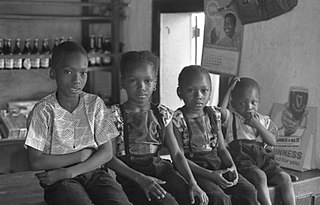
The Temne, also called Atemne, Témené, Temné, Téminè, Temeni, Thaimne, Themne, Thimni, Timené, Timné, Timmani, or Timni, are a West African ethnic group. They are predominantly found in the Northern Province of Sierra Leone. Some Temne are also found in Guinea. The Temne constitute the largest ethnic group in Sierra Leone, at 35.5% of the total population, which is slightly more than the Mende people at 31.2%. They speak Temne, a Mel branch of the Niger–Congo languages.
Thomas Peters, born Thomas Potters, was a veteran of the Black Pioneers, fighting for the British in the American Revolutionary War. A Black Loyalist, he was resettled in Nova Scotia, where he became a politician and one of the "Founding Fathers" of the nation of Sierra Leone in West Africa. Peters was among a group of influential Black Canadians who pressed the Crown to fulfill its commitment for land grants in Nova Scotia. Later they recruited African-American settlers in Nova Scotia for the colonisation of Sierra Leone in the late eighteenth century.
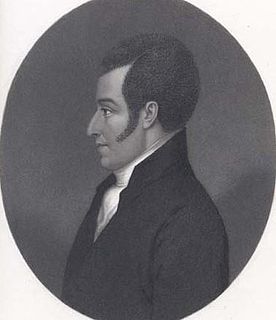
Daniel Coker (1780–1846), born Isaac Wright, was an African American of mixed race from Baltimore, Maryland; after he gained freedom from slavery, he became a Methodist minister. He wrote one of the few pamphlets published in the South that protested against slavery and supported abolition. In 1816 he helped found the African Methodist Episcopal Church, the first independent black denomination in the United States, at its first national convention in Philadelphia.

Leicester is a coastal town in the Western Area Rural District of Sierra Leone. The town lies approximately fifteen miles east of Freetown. The town has an estimated population of 18,678. Leicester is largely populated by the Krio people. The Krio language is the primary language of communication in the town.
Dr. John Augustus Abayomi-Cole (1848–1943) was a Sierra Leonean medical doctor and herbalist.
Christopher Fyfe was a Scottish historian most noted for his work on Sierra Leone in West Africa.

The Sierra Leone Grammar School was founded on 25 March 1845 in Freetown, Sierra Leone, by the Church Mission Society (CMS), and at first was called the CMS Grammar School. It was the first secondary educational institution for West Africans with a European curriculum. Many of the administrators and professionals of British West Africa were educated at the school.
Constance Cummings-John was a Sierra Leonean educationist and politician. She was the first woman in Africa to join a municipal council and in 1966 became the first woman to serve as mayor of Freetown. She was based in London, England, for the latter part of her life.
Hannah Benka-Coker,, néeLuke was an educator from Sierra Leone. She is one of the founders of the Freetown Secondary School for Girls (FSSG) which was established in 1926.
The following is a timeline of the history of the city of Freetown, Sierra Leone.
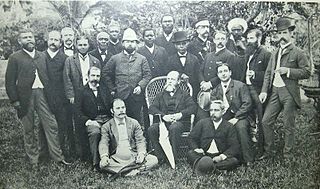
Robert Smith FRCSE (1840–1885), also known as Bob Smith, was a Sierra Leonean medical doctor who served as Assistant Colonial Surgeon of Sierra Leone during the late nineteenth century. Smith was the first African to become a Fellow of the Royal College of Surgeons of Edinburgh after completing his medical studies at the University of Edinburgh.
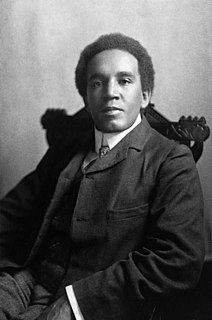
The Sierra Leone Creole people is an ethnic group in Sierra Leone. The Sierra Leone Creole people are descendants of freed African American, West Indian, and Liberated African slaves who settled in the Western Area of Sierra Leone between 1787 and about 1885. The colony was established by the British, supported by abolitionists, under the Sierra Leone Company as a place for freedmen. The settlers called their new settlement Freetown. Today, the Sierra Leone Creoles are 1.3% of the population of Sierra Leone.

The Oku people or the Aku Marabout or Aku Mohammedans are an ethnic group in Sierra Leone and the Gambia primarily the descendants of educated, liberated Yoruba Muslims from Southwest Nigeria, who were released from slave ships and resettled in Sierra Leone as Liberated Africans or came as settlers in the mid-19th century. Some Oku historically have intermarried since then with the ethnic Creole people. The Creole were primarily descendants of African-American former slaves, as well as some from Jamaica, and slaves liberated from illegal slave trading in the 19th century. The Oku people primarily reside in the communities of Fourah Bay, Fula Town, and Aberdeen and the official cemetery primarily used by the Oku people is the Aku Mohammedan Cemetery.
Kenneth Macaulay (1792-1829) was a merchant and colonial official in British Sierra Leone during the early nineteenth century. Macaulay served as Acting-Governor of Sierra Leone and was appointed as a member of His Majesty's Colonial Council. He was a second cousin of Zachary Macaulay, the abolitionist and member of the Clapham Sect.
Kaffu Bullom Chiefdom is an administrative area located in Port Loko District, Northern Province, Sierra Leone.
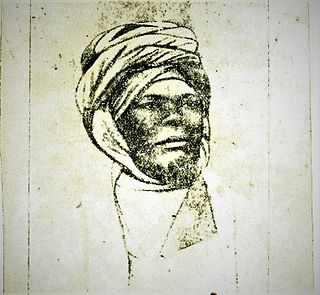
Chief Mohammed Shitta-Bey, alias Olowo Pupa, was the first titled Seriki Musulumi of Lagos. He was a prominent Nigerian Muslim businessman, aristocrat and philanthropist who was involved in commerce across Lagos and the Niger-Delta region. He was also a patron of the Shitta-Bey Mosque in Lagos, and served as a leader in the Lagos Muslim community until his death.
A Colonial Surgeon was a medical official in the British Empire. Colonial Surgeons were sometimes part of the government of British colonies, for instance in British Honduras where the Colonial Surgeon was a member of the Executive Council. Daniel Robertson was Colonial Secretary and Acting Governor of the Gambia in the mid-nineteenth century. Samuel Rowe was twice governor of Sierra Leone and held several other senior positions.
References
- ↑ Patton, Adell (1996). Physicians, colonial racism, and diaspora in West Africa. Gainesville [u.a.]: Univ. Press of Florida. ISBN 978-0-8130-1432-6.
- ↑ Cole, Gibril (2006). "Rethinking the Demographic Make up of Krio Societydate=2006". In Cole, Gibril; Dixon-Fyle, Mac (eds.). New perspectives on the Sierra Leone Krio. New York: Lang. ISBN 9780820479378.
- ↑ Sibthorpe, A. B. C. (1970). The History of Sierra Leone (4th ed.). London: F. Cass. ISBN 978-0714617695.
- ↑ Holman, James (1834). Voyage Round the World: Including Travels in Africa, Asia, Australasia, America, Etc. Etc. London: Smith, Elder & co.